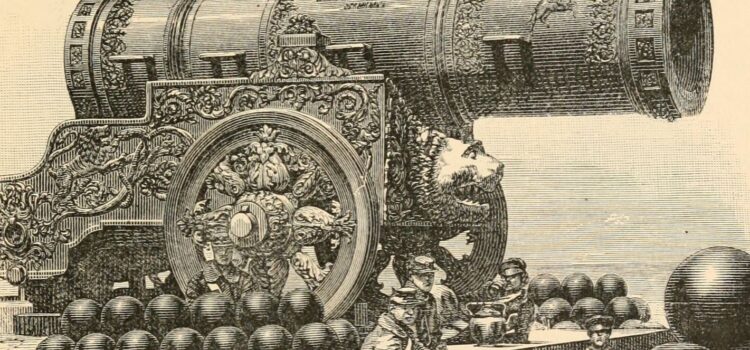

This article is an excerpt from the Shortform summary of "The Federalist Papers" by Alexander Hamilton. Shortform has the world's best summaries of books you should be reading.
Like this article? Sign up for a free trial here .
What is Federalist 23 about? How does it defend the Constitution by focusing on the common defense?
Common defense is a term that refers to a country’s ability to protect itself. The United States a whole is better equipped for the common defense than individual states on their own.
Read more about the common defense as discussed in Federalist 23.
The Common Defense
The most important purpose of any government is to secure peace and protect its people from internal and external threats. Therefore, maintaining armed forces is essential to the common defense and survival of a nation.
Accordingly, the federal government under the Constitution would have the power to raise and equip armed forces for the common defense. This was vitally important for the young United States. Although separated from Europe by the Atlantic Ocean, the US maintained frontiers with the colonial possessions of Britain, France, and Spain, not to mention the Indian nations that frequently allied with these European powers. Given the mutual hostilities between these powers and their competition for the untapped resources of the American West, it was not inconceivable that these nations could combine to make war on the US.
The only way the US could survive was through the creation of a standing army. Given their experience with British occupation during the Revolutionary War, however, this was something about which Americans of the time had great apprehension.
But the creation of standing armies in peacetime was not something to be feared, nor had it ever been explicitly prohibited, either by the Articles of Confederation or by the state constitutions themselves. Provisions prohibiting the national legislature from raising an army in peacetime were foolish because they left the country vulnerable to attack. The country would only be able to respond with force after it had been subjected to an assault.
Federalist 23: Forces Are Agents of Liberty
Standing armies under the Constitution would not become agents of tyranny because they could only be raised by the legislative—not the executive—branch. As the legislative branch would be composed of members popularly and periodically elected, this would ensure that the people’s representatives retained control and would prevent the creation of a permanent military establishment—something much feared by Americans of the time. According to Federalist 23, the common defense did not need to be feared.
By placing this power in the hands of the House of Representatives and Senate (the two bodies of Congress, which we’ll explore in a later chapter), the Constitution would make it harder for a conspiracy to arise that would seek to use the military to overthrow the republic. Such a conspiracy would need to coordinate the actions of many representatives from many states, as well as the state legislatures, rather than just one supreme executive.
Moreover, the Constitution only allowed Congress to authorize military funds for a period of two years. As elected officials, members of both houses would be wary of provoking the anger of their constituents by voting for military appropriations when they were no longer necessary for defense.
As we explored in the previous chapter, it was the state governments that were more likely to threaten liberties, as they were more susceptible to takeover by a hostile faction. In this scenario, a national army that had sovereignty over all the people, regardless of their state, was the only instrument capable of putting down a petty state-based tyranny. But this would be impossible under a confederacy, in which states would be left almost entirely alone to manage their affairs.
The great extent of the country would further make it difficult for a national army to impose tyranny on the people. Likewise, the size of the country would make it difficult for a foreign power to invade and occupy it, which in and of itself, would reduce the need for a large standing army in the first place. But such a security could only be predicated on the continued survival of the Union—and the only way to secure that Union was through the adoption of the new Constitution.
A Strong Navy
A strong federal government would also have better resources to build and equip a navy. The navy would bring an economic stimulus to the states that provided the materials and labor for its construction.
In addition, it would serve to protect American merchant seamen from the privations of European navies on the high seas, who often treated American cargo ships as objects of plunder.

———End of Preview———
Like what you just read? Read the rest of the world's best summary of Alexander Hamilton's "The Federalist Papers" at Shortform .
Here's what you'll find in our full The Federalist Papers summary :
- The genius of the founding fathers in how they designed the United States Constitution
- Why it was critical for the United States to form a union rather than stay separated as colonies
- How Alexander Hamilton anticipated social issues that are still relevant today






